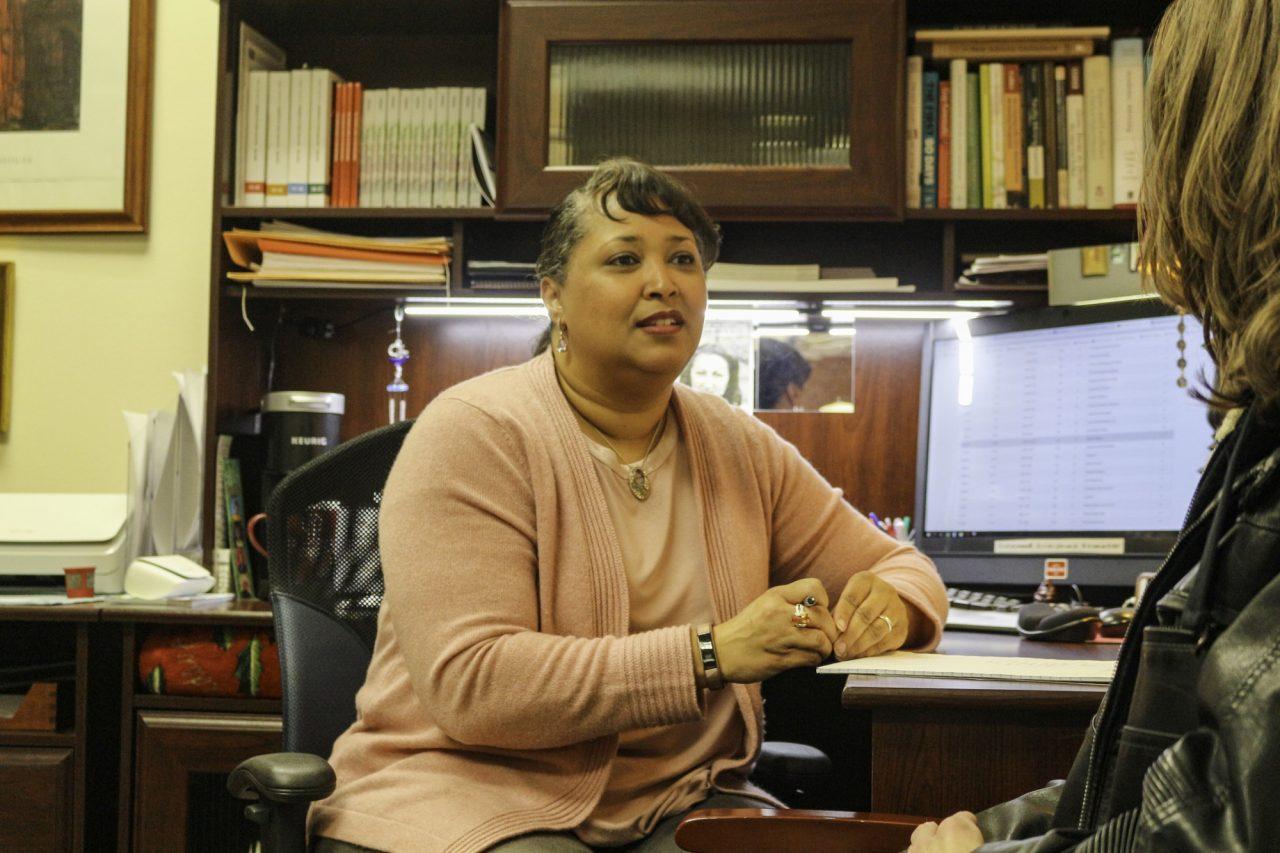File photo
You never know you have a good thing ‘til it’s gone. The Academic Advising Mentor Program consists of a group of upperclassman students who advise first-year students who are on academic probation. Even before the University switched to online synchronous learning for the semester due to the coronavirus pandemic, the Academic Advising Mentor Program was set to terminate at the end of the spring semester due to the upcoming expansion of Academic Advising at Trinity.
The Academic Advising Mentor Program was created by
Lapétra Bowman, advising coordinator, when she realized that faculty advisers unofficially enlisted the help of students to aid with registration or mentorship. Bowman standardized the program in Fall 2018.
“While they were helpful for facilitating group advising for faculty or helping with registration, these were students who had never been officially trained as advisers, hadn’t been FERPA trained and didn’t fill out the proper paperwork to view student information if a student ever offered it,” Bowman said.
Junior Christina Ridlen, a current academic advising mentor, explained that her training process began with a general education class, General Education 2112: Advising Literacy.
“[The class] helped me see every student as an important asset to the university and help them focus on what they are good at,” Ridlen said. “My biggest takeaway was, how do you uplift someone with many failures in the past?”
Ridlen is paid as an adviser and has a “caseload” of six students this semester. The assignments were random to ensure that the adviser did not know the advisee beforehand.
“We meet once a week at an assigned time, like an appointment, for about an hour,” Ridlen said. “It averages to about five hours a week.”
Ridlen explained that there is more to advising than discussing academics.
“It also includes things that are going on socially such as managing social life with school. Maybe a relationship is taking up all of your time, so how do you manage all of your time so your partner is not taking up all of your time?” Ridlen said.
When advisees seek other types of support, Ridlen treats them on a case-by-case basis, by helping students herself or referring them to Counseling Services.
“I just try to think of all the conversations I would have with Dr. Bowman and how she would handle the situations. I put them in my shoes and treated them a little nicer,” Ridlen said.
According to Ridlen, a peer-to-peer relationship has various benefits for the mentor, as well as the mentee.
“I was going through a really hard time at the beginning of this semester, and I would wake up in the morning and think how was I going to advise [the students] when I was on the verge of tears and honestly, helping them made me forget about everything,” Ridlen said. “I realized that there are other problems in the world besides mine.”
Senior Molly Rosenblatt, also an academic student adviser, is now making sure students are OK given the transitions induced by COVID-19.
“First and foremost, we need to make sure students are okay. There’s a lot going on. I want to know what my students need and figure out how to support them,” Rosenblatt said.
Rosenblatt’s caseload has increased, as two other advising mentors are no longer able to work remotely given the COVID-19 transitions. Though the weekly, hour-long advising sessions will continue on Zoom, Rosenblatt believes the transition will lead to losses in efficacy.
“I think it is going to be really really hard for students. I’m worried about keeping my students attentive in a remote class, and the same thing goes for these advising meetings. Having a one-on-one meeting in the library is different than having a phone call or Zoom meeting,” Rosenblatt said.
Sophomore Abby Watson is one of the student advisers who chose not to continue with the program this semester.
“My own safety and my family’s safety is my number one priority at this point,” Watson said. “I also don’t feel I’m in the appropriate mental state, as well as advising state, to be able to provide the kind of advising mentorship that I think the students I was working with deserve.”
After the spring semester, Bowman explained that she is pausing the program temporarily so that she can focus on the new professional advising initiative.
“We’re pausing it going into summer and fall because the focus, for now, is the new advising initiative with professional advisers coming in,” Bowman said. “All of my energy has to go towards training [three] new advising staff because they will start working with incoming freshmen beginning this summer, around mid-July.”
For now, advisers are focused on addressing student needs during this transitional period rife with anxiety and feelings of isolation.
“The coolest part about this job is that my entire job is to make sure my six students get all the resources that they need from Trinity to succeed,” Rosenblatt said.
With additional reporting by Kara Killinger, pulse editor













